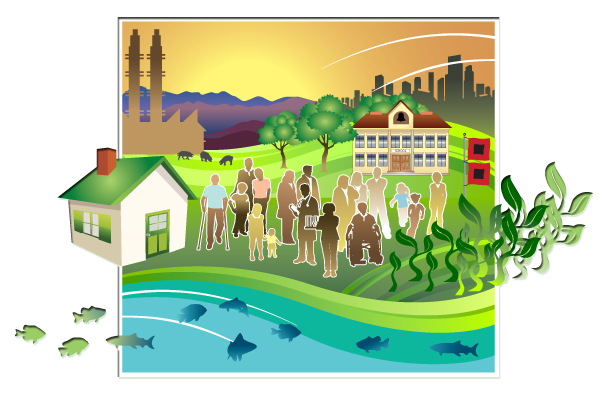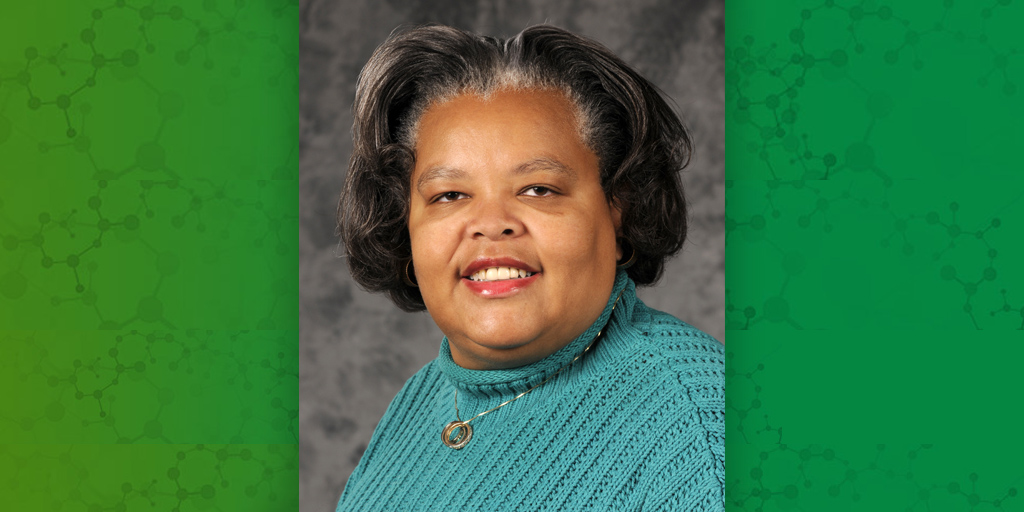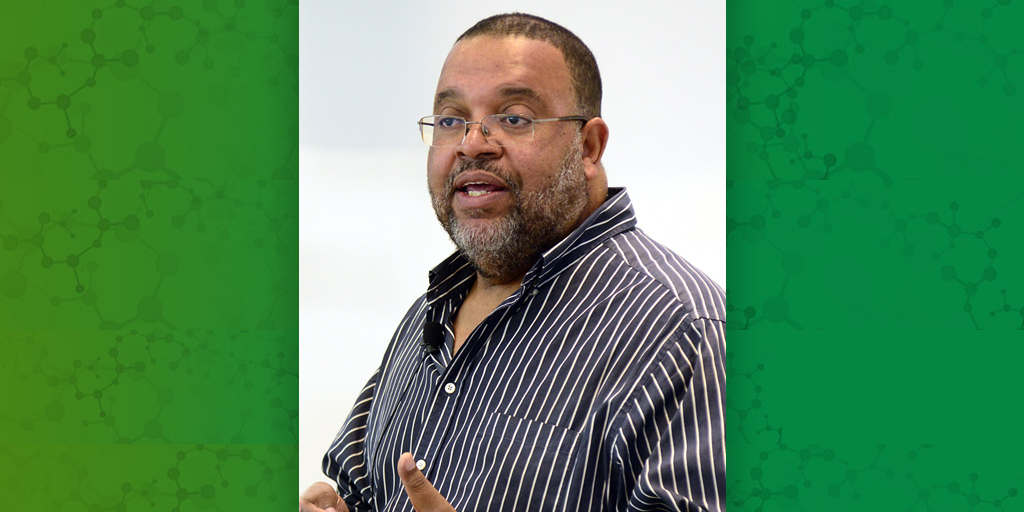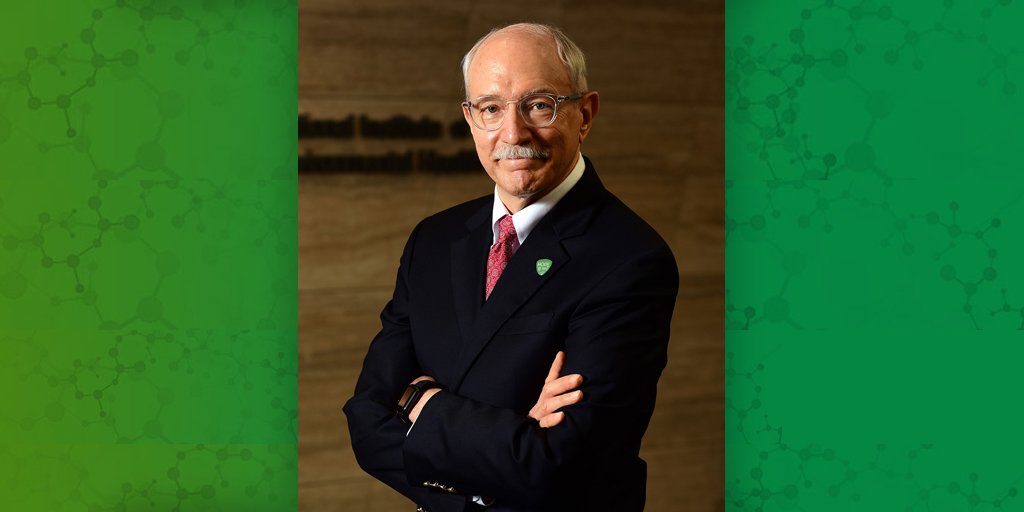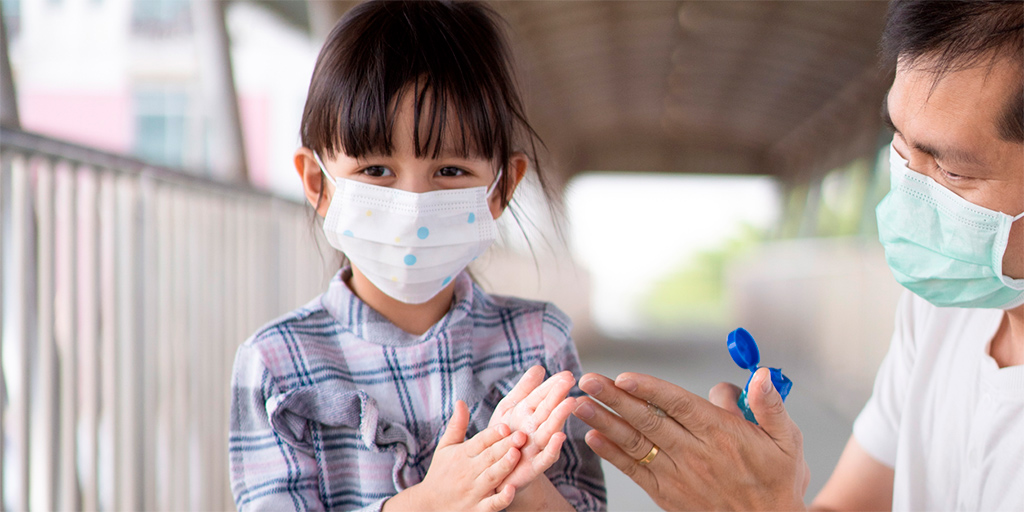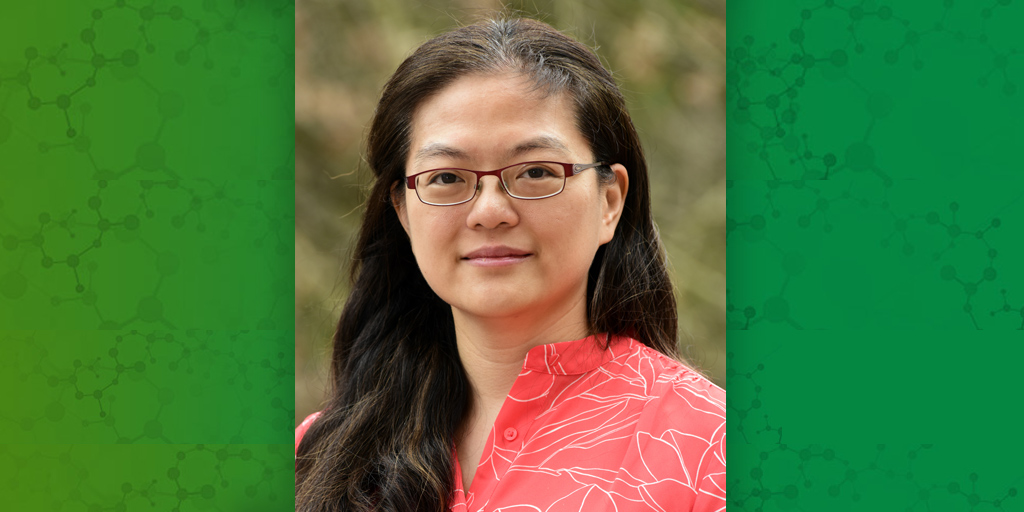Community Scientists Empower Rural Washington Communities to Tackle Health Concerns
Community air-monitoring networks may benefit researchers and local residents by providing more refined data through lower-cost operations. One such network, the Clean Air Ambassador Program, was implemented in Washington’s Methow Valley by Clean Air Methow, part of the Methow Valley Citizens Council, in response to local concerns about air quality issues. The rural communities in the Methow Valley frequently experience poor air quality from a number of sources, including wildfires, woodstoves, and agricultural burning. The community network has been collecting data since 2018 with a series of low-cost Purple Air monitors hosted by local volunteers (Clean Air Ambassadors), but there has not been much information published about best practices or standards in recruiting and retaining volunteers or creating such networks.
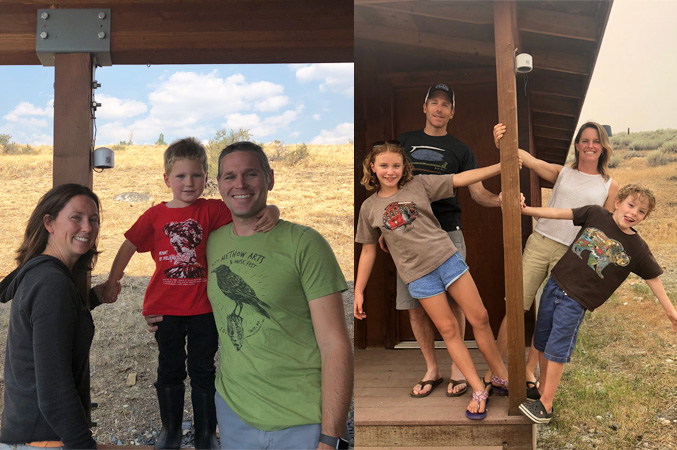
Two Clean Air Ambassador Families Show Off Their Purple Air Monitors. (Photo courtesy of Elizabeth Walker)
To address this gap and strengthen community science practices, Clean Air Methow partnered with researchers from the University of Washington’s Collaborative on Extreme Event Resilience and Interdisciplinary Center for Exposures, Diseases, Genomics and the Environment (EDGE). A student researcher interviewed Clean Air Ambassadors about their motivations in hosting sensors, how they used the data, ideas for future uses of the network, and challenges with the Clean Air Ambassadors project. The results were published in a paper, Establishing a Community Air Monitoring Network in a Wildfire Smoke-Prone Rural Community: The Motivations, Experiences, Challenges, and Ideas of Clean Air Methow’s Clean Air Ambassadors.
“Methow Valley community members have been really willing to collaborate with us to understand wildfire smoke exposures and associated health impacts,” said Nicole Errett, Ph.D., a disaster and public health policy researcher at the University of Washington School of Public Health and Director of EDGE's Community Engagement Core. “We wanted to understand what drove their motivation to participate and what their experiences were like, to inform our own project directions as well as similar community-engaged research efforts in other wildfire smoke-prone areas.”
Volunteers reported sparking community conversations when sharing sensor data. Dr. Elizabeth Walker, Clean Air Methow’s program director, was excited to hear this.
“Our foundational vision for this program was that Clean Air Ambassadors could inspire community discussions, simply by hosting a sensor and being willing to talk about it,” said Walker. “The ambassadors are a timely and critical resource that help the community speak about topics such as how to raise awareness of the dangers of wildfire smoke exposure; whether the county should invest in a composting facility to reduce outdoor burning; how to get air purifiers to vulnerable households during heavy wildfire smoke; and how sports coaches can use sensor data to make informed decisions about holding practice indoors or outdoors.”
Making real-life decisions based on environmental data can have a big impact on the health of a community, and the Clean Air Ambassadors are eager to increase the number of sensors in their own network and to spread this method to additional areas across the nation. They also suggested an app to make the data easily accessible. These steps would bring actionable data to more people and increase data usability. But Errett points out that more research is needed to determine the long-term effectiveness of protective actions that people might take as a result of seeing the data, such as mask-wearing and staying indoors.
“Community air monitor networks hold great promise for enhancing our understanding of exposures during wildfires and other disasters,” said Errett. “But these networks also empower communities to sustainably gather their own data and have discussions that can lead to impactful changes and improved health. We hope the insights from our interviews with the Clean Air Ambassadors encourage other community science leaders to jump-start their own networks.”
Walker noted that the program continues to grow its visibility and impact. Clean Air Methow has developed the ambassador-requested app to display air quality data and is hoping to incorporate a push notification for when air quality degrades. Additionally, with support from an Environmental Justice grant from the U.S. Environmental Protection Agency, Clean Air Methow is offering additional trainings for the volunteers and is asking the ambassadors to be more active on social media. A partnership with Family Health Centers will also support outreach to Spanish-speaking populations, many of whom are outdoor agricultural workers with high wildfire smoke exposures.
Community Scientists: What Motivates Them?

Are you enjoying the PEPH newsletter? Are there topics you'd like to see discussed more often? Please take a few minutes to provide feedback.
The interviews with the Clean Air Ambassadors revealed a lot about the community science experience. Clean Air Ambassadors, many of whom regularly spend a lot of time outdoors, reported a variety of motivations for participating in the program, including exposure reduction and an interest in learning more about air quality or environmental science. Volunteers also wanted to help the community by sharing information which could, for example, guide decisions and planning around outdoor school activities. Some said they were also motivated by concerns about family members’ susceptibility to the health effects of wildfire smoke and wanted to decrease exposure-related health issues such as headaches and difficulty breathing. In terms of data usage, volunteers used the data from the monitors for different reasons: understanding air quality conditions during smoke events, avoiding smoke exposure, and making decisions about wearing protective masks and about exercising.
Errett is hopeful that promoting awareness of community science will lead to more engagement, empowering more communities to make meaningful change on important environmental health issues. She also believes that learning about community scientists’ experiences, and applying those lessons to future research, will improve the community science experience for all involved.
Youth Participatory Research Investigates Air Pollution Inequities and Provides Benefits to Youth
A recent study used youth participatory action research to investigate air pollution inequities in Richmond, California, a city occupied by diverse communities of color. This form of community based participatory research emphasizes youth empowerment and trajectories of development. Formally trained researchers from the UC Berkeley's Center for Environmental Research and Children’s Health partnered with RYSE, a local youth justice center, to engage high school students to measure noise pollution and air quality to quantify neighborhood disparities. Youth participated in various stages of the project, including research design and data collection, which is detailed in the paper Freedom to Breathe. For example, the youths’ familiarity with the neighborhoods and where vulnerable populations spent their time informed where to place air monitors. The high school student participants also received environmental health literacy training, professional development training in the form of college application workshops and one-on-one application reviews, and tours of UC Berkeley, including a panel discussion with undergraduate students of color who spoke about their experiences. Participants expressed that their involvement in the project would influence their decisions about their college majors, and many also obtained external employment opportunities in environmental health. Although these goals were not part of the study’s objectives, they reflect the spirit of participatory research, which supports capacity building and facilitates opportunities to access important resources.
New Agents of Change Podcast Tells of Trailblazing Journey in Environmental Health
In the Agents of Change’s recent podcast, Yoshira Ornelas Van Horne, Ph.D., speaks about her trailblazing journey in environmental health and the importance of centering research on the health of communities. Ornelas Van Horne, a postdoctoral researcher with Jill Johnston, Ph.D., at the University of Southern California, works with Latino communities to study disproportionate rates of respiratory illnesses such as asthma. She grew up bicultural and bilingual and was the first Latina to receive a Ph.D. from the environmental health sciences department at the University of Arizona. The Agents of Change: Amplifying neglected voices in environmental health initiative is an ongoing series of stories, analyses, and perspectives of next generation environmental health leaders from historically underrepresented backgrounds in science and academia. Agents of Change is supported by Environmental Health News and The George Washington University Milken Institute School of Public Health.
April is Citizen Science Month
The Clean Air Ambassador Program, which is detailed in this month’s feature article, and the radon story featured last month, are just two projects that demonstrate the importance of citizen science, which is actively promoted during Citizen Science Month. During April, the National Library of Medicine and SciStarter support activities to increase awareness of citizen science and help individuals explore the impact of the environment on health. SciStarter is a global, online citizen science hub with more than 3,000 projects led by individuals or by partnerships among federal governments, NGOs, universities, and communities. Past projects have included online gaming to accelerate Alzheimer’s research, gathering light pollution data, documenting changes in weather and climate, and collecting air quality data.
NIEHS has long supported community-engaged research and citizen science, and continues to encourage new approaches that foster collaboration between communities and scientists. You can learn more about what citizen science projects are supported across the federal government by visiting CitizenScience.gov.
Hosting a Community Air Quality Activity? The EPA Wants to Hear from You for Air Quality Awareness Week
Air Quality Awareness Week will be celebrated May 3-7, 2021. This year’s theme is Healthy Air – Important for Everyone! The week is hosted by the Environmental Protection Agency (EPA) in partnership with the National Oceanic and Atmospheric Administration National Weather Service, Centers for Disease Control and Prevention, U.S. Forest Service, and U.S. Department of State with the goal of promoting events that increase air quality awareness and encouraging people to check the Air Quality Index. The EPA would like to hear from you to help spread the word about any community air quality activities you are conducting or educational resources you have. Please contact Debra Lee to share photos, videos, materials, or information on programs and events or to ask any questions about Air Quality Awareness Week. A different topic will be featured each day of the week: wildfires and smoke, asthma and health, citizen science and sensors, environmental justice communities and air quality, and air quality around the world.
New Tool for Public Health Professionals: Community Stress Resource Center
Communities may face psychological and social impacts, such as health and financial concerns and feeling powerless, as a result of long-term environmental contamination. The Agency for Toxic Substances and Disease Registry has been working to better understand and develop resources to address the psychosocial impacts associated with long-term environmental contamination and has recently launched the Community Stress Resource Center. It is aimed at helping public health professionals reduce stress and build resilience in communities during public health responses to environmental contamination as they work with community members and community organizations. The toolkit has information on the sources of community stress and resilience and how stress can affect community members’ health. It also has an action-oriented framework, the 3 Keys Framework: Recognize, Prepare, Partner, and other practice-oriented resources for achieving the framework’s objectives.
Suggestions Wanted on How to Advance and Strengthen Racial Equity, Diversity, and Inclusion in the Biomedical Research Workforce and Advance Health Disparities and Health Equity Research
NIH invites feedback on approaches it can take to advance racial equity, diversity, and inclusion within the biomedical research workforce, and expand research to eliminate or lessen health disparities and inequities. People throughout the scientific research, advocacy, clinical practice, and non-scientific communities, including community partners and organizations and the general public, are invited to provide suggestions on practical and effective actions and solutions that NIH can take to improve the diversity and inclusivity of research environments through policy, procedure, and practice. NIH seeks comments on topics such as the perception and reputation of NIH; factors that present obstacles to training, promotion, and tenure; and significant research gaps or barriers to advancing the science of health disparities. However, comments are not limited to these topics. Responses are due April 9. Read the full Request for Information.

PEPH Environmental Health Chat Podcast Series
Greening Neighborhoods to Improve Health
PEPH Environmental Health Chat Podcast Series
Greening Neighborhoods to Improve Health
The project is aimed at understanding the impact of green space on air quality and health in urban communities and also supports the planting of mature trees in urban areas.
You can find more podcasts on the Environmental Health Chat webpage or subscribe to the series on iTunes. We want your feedback! Send comments and ideas for future podcasts to [email protected].

PEPH Grantee Highlight
Mindy Richlen, Ph.D.
Although Mindy Richlen, Ph.D., grew up in southern Idaho, far from any oceans, she now studies harmful algal blooms, which occur when certain algae species grow rapidly and produce toxins. Harmful algal blooms can have significant economic, social, and human health implications, such as beach and fishery closures and fish being recalled. Because of these and other health, social, and economic impacts, Richlen believes that community engagement is key. She is the head of the Community Engagement Core of the Woods Hole Center for Oceans and Human Health, which is active in classroom education and building environmental health literacy for the public. Richlen, in collaboration with Carla Curran, Ph.D., developed interdisciplinary educational activities about harmful algal blooms for middle school students. This material incorporates concepts from biology and ecology, marine science, math, and data analysis and allows students to work with data produced by researchers, a feature that teachers greatly appreciate. The material has already been used in classrooms, and Richlen and Curran plan to develop more student-focused material. Moving forward, Richlen also hopes to bridge connections between researchers and the public health and medical communities in order to improve clinician recognition and reporting of illnesses related to harmful algal blooms.
Funding Opportunites
KC Donnelly Externship (Admin Supp Clinical Trial Not Allowed)
Supports successful applicants for translational/transdisciplinary opportunities and experiences within other Superfund Research Program (SRP)-funded centers, government laboratories (e.g., US EPA, Agency for Toxic Substances and Disease Registry (ATSDR), NIEHS), or other agencies (state, local, Tribal). To be eligible, an applicant must be a graduate student (Master's or Ph.D.) or a postdoctoral researcher (status must be maintained for duration of externship) conducting research/activities in any SRP R01 grant or project/core within an SRP P42 Center.
Deadline: April 1, 2021
Letter of Intent: Due 30 days prior to the application due date
NIEHS Support for Understanding the Impact of Environmental Exposures on Coronavirus Disease 2019 (COVID-19)
Addresses the urgent need for mission-relevant research to understand the impact of environmental exposures on Coronavirus Disease 2019 (COVID-19) and its causative agent, the virus SARS-Cov-2. NIEHS is particularly interested in applications that will provide insight into the role of environmental exposures in pathogenicity, transmission, individual susceptibility, or prevention and intervention strategies. Examples of environmental exposures relevant to the NIEHS mission include: toxic chemicals, air pollutants, second hand tobacco smoke, e-cigarette vapors, metals, and other environmental chemical exposures that may impact health outcomes. NIEHS is accepting applications addressing COVID-19 through the administrative supplement, urgent competitive revision, and time-sensitive mechanisms.
Deadlines: October 1, 2020; November 2, 2020; December 1, 2020; January 4, 2021; February 1, 2021; March 1, 2021; April 1, 2021; May 3, 2021
Notice of Special Interest (NOSI): Administrative Supplements for Research on Women’s Health in the IDeA States (Admin Supp Clinical Trial Optional)
Supports the expansion of research and research capacity in the Institutional Development Award (IDeA) states to address important issues of women’s health across the lifespan. Residents in IDeA states, especially those living in rural areas, often have less access to health care and suffer from poorer health outcomes, including health outcomes for women and children, than the average American. These administrative supplements aim to increase research specifically directed at women’s health and health disparities and to expand the capacity of IDeA states to conduct women’s health research. The proposed research must address at least one of the strategic goals of the 2019-2023 Trans-NIH Strategic Plan for Women's Health Research "Advancing Science for the Health of Women." NIEHS is particularly interested in research that addresses how exposures to toxic chemical and non-chemical environmental insults alter biologic processes and may be linked to disease in women, particularly maternal and infant mortality and morbidity. Equally important is research examining women’s health at the intersection of chemical, physical, built, and social environments. To be eligible, an applicant must be a current awardee of a Centers of Biomedical Research Excellence, IDeA Networks of Biomedical Research Excellence, or IDeA-Clinical and Translational Research grant.
Deadline: April 19, 2021
Intervention Research to Improve Native American Health (R01 Clinical Trial Optional)
Supports research on interventions to improve health in Native American (NA) populations. This includes 1) etiologic research, where there is a significant gap in knowledge, that will directly inform intervention development or adaptations, 2) research that develops, adapts, or tests the efficacy or effectiveness of health promotion and disease prevention interventions, 3) research that tests culturally informed treatment or recovery interventions and 4) where a sufficient body of knowledge on intervention efficacy exists, research on dissemination and implementation that develops and tests strategies to overcome barriers to the adoption, integration, scale-up, and sustainability of effective interventions. Through this initiative, intervention and related research is sought to build upon community knowledge, resources, and resilience to test science-based, culturally appropriate solutions to reduce morbidity and mortality through identification and remediation of precursors to diseases and disorders and through culturally informed treatment.
Deadline: May 17, 2021; May 17, 2022; May 17, 2023
Letter of Intent: Due 30 days prior to the application due date
Support for Research Excellence (SuRE) Award (R16 Clinical Trial Not Allowed)
The purpose of SuRE awards is to provide research grant support for faculty investigators who have prior experience in leading externally-funded, independent research but are not currently funded by any NIH Research Project Grants with the exception of SuRE or SuRE-First awards. Awards are open to institutions that receive no more than $6 million per year from NIH Research Project Grants and additionally enroll at least 25% of undergraduate students supported by Pell grants, or are an accredited medical/health professional school with a historical mission statement that explicitly states that it was founded to educate students from nationally underrepresented backgrounds.
Deadlines: May 26, 2021; May 26, 2022; May 26, 2023
Immune Development in Early Life (IDEaL) (U01 Clinical Trial Not Allowed)
Supports research to define the mechanisms regulating the establishment, development, and maintenance of immunity throughout childhood, including the impact of pathogenic or commensal microbes or vaccination against infectious diseases, allergens, or environmental pollutants on immune ontogeny and function. This program will establish collaborations among immunologists, neonatologists, pediatricians, systems biologists, and microbiologists to expand our knowledge of the developing immune system. Knowledge obtained through this program may be applied to the design of improved vaccines and immunotherapies to combat infections or treat/prevent immune-mediated diseases in this vulnerable population.
Deadline: June 4, 2021
Letter of Intent: Due 30 days prior to the application due date
Immune Development in Early Life (IDEaL) (U19 Clinical Trial Not Allowed)
Supports research to define the mechanisms regulating the establishment, development, and maintenance of immunity throughout childhood, including the impact of pathogenic or commensal microbes or vaccination against infectious diseases, allergens, and environmental pollutants on immune ontogeny and function. This program will establish collaborations among immunologists, neonatologists, pediatricians, systems biologists, and microbiologists to expand our knowledge of the developing immune system. Knowledge obtained through this program may be applied to the design of improved vaccines and immunotherapies to combat infections or treat/prevent immune-mediated diseases in this vulnerable population.
Deadline: June 4, 2021
Letter of Intent: Due 30 days prior to the application due date
Addressing Health Disparities Among Immigrant Populations Through Effective Interventions (R01 Clinical Trial Optional)
Supports research to design and implement effective interventions to enhance health advantages and reduce the health disparities among U.S. immigrant populations, particularly migrant workers, recent and first-generation immigrants. This announcement calls for multidisciplinary/multilevel research focusing on the design and implementation of effective interventions that will address immigrant-specific factors to reduce health disparities. A framework to demonstrate the multidomain, multilevel factors that may influence health disparities is available here. A life-course perspective is encouraged with interventions focusing attention on transition points across the lifespan and associated risk and protective factors for immigrant populations. Projects should involve collaborations among relevant stakeholders in U.S. immigrant population groups, such as researchers, community organizations, healthcare providers, public health organizations, consumer advocacy groups, and faith-based organizations. Projects must focus on immigrants from one or more NIH-designated populations that experience health disparities in the U.S., which include racial and ethnic minorities (Blacks or African Americans, Hispanics/Latinos, Asian Americans, and Pacific Islanders).
Deadlines: February 5, 2021; June 5, 2021; October 5, 2021
Addressing the Etiology of Health Disparities and Health Advantages Among Immigrant Populations (R01 Clinical Trial Not Allowed)
Supports innovative research to understand factors uniquely associated with the immigration experience that contribute to health disparities or health advantages among U.S. immigrant populations, particularly migrant workers, recent and first-generation immigrants. This announcement calls for multidisciplinary research to address the specific underlying causes and mechanisms of health disparities and health advantages. A framework to demonstrate the multidomain, multilevel factors that may influence health disparities is available here. Projects should involve collaborations among relevant stakeholders in U.S. immigrant population groups, such as researchers, community leaders and organizations, public health organizations, consumer advocacy groups, faith-based organizations, and healthcare providers. Projects must focus on immigrants from one or more NIH-designated populations that experience health disparities in the U.S., which include racial and ethnic minorities (Blacks or African Americans, Hispanics/Latinos, Asian Americans, and Pacific Islanders).
Deadlines: February 5, 2021; June 5, 2021; October 5, 2021
Dissemination and Implementation Research in Health (R01 Clinical Trial Optional)
Supports innovative approaches to identifying, understanding, and developing strategies for overcoming barriers to the adoption, adaptation, integration, scale-up and sustainability of evidence-based interventions, tools, policies, and guidelines. Additionally, there is a benefit in understanding circumstances that create a need to stop or reduce (“de-implement”) the use of interventions that are ineffective, unproven, low-value, or harmful. This FOA invites research grant applications that will identify, develop, test, evaluate, and/or refine strategies to disseminate and implement evidence-based practices (e.g. behavioral interventions; prevention, early detection, diagnostic, treatment and disease management interventions; quality improvement programs) into public health, clinical practice, and community (e.g., workplace, school, place of worship) settings. Studies to advance dissemination and implementation research methods and measures are also encouraged.
Deadlines: February 5, 2021; June 5, 2021; October 5, 2021
Letter of Intent: Due 30 days prior to the application due date
Transition to Independent Environmental Health Research (TIEHR) Career Award (K01 Independent Basic Experimental Studies with Humans Required)
The Transition to Independent Environmental Health Career Award is a 3-year bridge scholar development program for newly independent faculty who intend to pursue research careers in environmental health sciences. This funding opportunity is designed for applicants proposing to serve as the lead investigator of an independent clinical trial, a clinical trial feasibility study, or a separate ancillary study to an existing trial. For applicants not planning independent basic experimental studies with humans, there are two companion funding opportunities. Applicants planning independent clinical trials with specific application towards processes or with products in mind, must apply to the companion funding opportunity announcement, Transition to Independent Environmental Health Research (TIEHR) Career Award (K01 Clinical Trial Required). Applicants not planning an independent clinical trial, or proposing to gain research experience in a clinical trial led by another investigator, must apply to companion funding opportunity announcement, Transition to Independent Environmental Health Research (TIEHR) Career Award (K01 Clinical Trial Not Allowed). At the conclusion of the career development period the candidates are expected to demonstrate they can successfully compete for research funding in the environmental health sciences. Eligible candidates for the K01 award must have a research or health-professional doctoral degree and must be within three years of their appointment to their first independent faculty position at the time of submission (receipt date) of the application.
Deadlines: June 12, 2021; October 12, 2021
Native American Research Centers for Health (S06 Clinical Trial Optional)
Invites applications from federally recognized Tribes and Tribal organizations for the Native American Research Centers for Health (NARCH) initiative, which supports biomedical research and career enhancement opportunities to meet health needs prioritized by American Indian or Alaska Native communities. The NARCH initiative also supports research capacity building and the development of research infrastructure to enhance the biomedical research capabilities of these communities.
Deadline: June 24, 2021
Letter of Intent: Due 30 days prior to the application due date
Understanding and Addressing the Impact of Structural Racism and Discrimination on Minority Health and Health Disparities (R01 Clinical Trial Optional)
This initiative will support (1) observational research to understand the role of structural racism and discrimination in causing and sustaining health disparities, and (2) intervention research that addresses structural racism and discrimination in order to improve minority health or reduce health disparities. NIEHS is interested in observational research examining the role of structural racism and discrimination as a significant determinant in environmental health disparities, or evidence-based intervention research that mitigates or prevents the negative health outcomes attributable to environmental structural racism and discrimination. Applicants are strongly encouraged to utilize community engaged research approaches and include letters of support from community partners. Applications that demonstrate collaborative (i.e., community-academic partnerships) approaches to understand and/or address the negative health effects of environmental structural racism and discrimination across multiple health disparity communities will be prioritized. Areas of specific interest to NIEHS include, but are not limited to: single or combined environmental exposures affecting the health of communities; health impacts of climate change, extreme weather and natural or human caused disasters; the built environment and greenspace, including green gentrification; studies grounded in community identified concerns around the intersection of environmental structural racism and discrimination and health outcomes; the impact of environmental structural racism and discrimination on health outcomes across the lifespan; and the role of environmental structural racism and discrimination in occupational exposures.
Deadline: August 24, 2021
Letter of Intent Deadline: July 20, 2021
NIH Countermeasures Against Chemical Threats (CounterACT) Research Centers of Excellence (U54 Clinical Trial Optional)
The mission of the NIH CounterACT program is to foster and support research and development of new and improved therapeutics for chemical threats. Chemical threats are toxic chemicals that could be used in a terrorist attack or accidentally released from industrial production, storage or shipping. They include traditional chemical warfare agents, toxic industrial chemicals, pharmaceutical-based agents, and pesticides. The Centers will contain at least three research projects supported by an administrative core, up to three optional scientific cores, a research education core, and a pilot project program to support short-term innovative research and recruitment of new investigators into the field of medical countermeasures research. Each research project must include milestones that create discrete go or no-go decision points in a progressive translational study plan.
Deadlines: September 14, 2021; September 13, 2022; September 12, 2023
Letter of Intent: Due 30 days prior to the application due date
Support for Research Excellence – First Independent Research (SuRE-First) Award (R16 Clinical Trial Not Allowed)
The purpose of SuRE-First awards is to support research grants for faculty investigators who have not had prior independent external research grants. A SuRE-First applicant must identify a scientist based in the U.S. with expertise and an extramural funding record in the proposed field of research to serve as a mentor. SuRE-First-supported projects must have student participation in the execution, analysis, and reporting of the research. Awards are open to institutions that receive no more than $6 million per year from NIH Research Project Grants and additionally enroll at least 25% of undergraduate students supported by Pell grants, or are an accredited medical/health professional school with a historical mission statement that explicitly states that it was founded to educate students from nationally underrepresented backgrounds.
Deadlines: September 28, 2021; September 28, 2022; September 28, 2023
Maximizing the Scientific Value of Existing Biospecimen Collections (R21 Clinical Trial Not Allowed)
Supports research relevant to the mission of the Food and Drug Administration (FDA) – Center for Tobacco Products using existing (publicly available) biospecimens currently stored in repositories in the U.S. This will include, but not be limited to, collections associated with the Population Assessment of Tobacco and Health Study, the National Health and Nutrition Examination Survey, the National Heart, Lung and Blood Institute’s Biologic Specimen and Data Repository Information Coordinating Center, and the Prostate, Lung, Colorectal and Ovarian Cancer Screening Trial. Proposed research should seek to maximize the scientific value of these stored collections and to provide researchers with an opportunity to generate preliminary data for subsequent research proposals. Other publicly available datasets would be considered, depending on analyses to be conducted. These applications need to provide justification why the data set is unique, and the research questions cannot be answered from a publicly available, nationally representative, data set. Research Projects must address the research priorities related to the regulatory authority of the FDA – Center for Tobacco Products.
Deadlines: October 8, 2021; August 8, 2022; March 8, 2023
Letter of Intent: Due 60 days prior to the application due date
Secondary Analyses of Existing Datasets of Tobacco Use and Health (R21 Clinical Trial Not Allowed)
Supports research which conducts an innovative analysis of existing (publicly available) nationally representative U.S. cross-sectional and longitudinal data, to investigate novel scientific ideas and/or to generate new models, systems, tools, methods, or technologies that have the potential for significant impact on biomedical or biobehavioral research in areas relevant to the FDA – Center for Tobacco Products. Other publicly available data sets would be considered depending on the analyses to be conducted; however, nationally representative analyses will receive priority. Applications not using nationally representative data sets will need to provide justification why the data set is unique, and why the research questions cannot be answered from a (publicly available) nationally representative data set. This funding opportunity announcement encourages the analyses of public use datasets that may inform tobacco regulatory actions in the U.S. Research Projects must address the research priorities related to the regulatory authority of the FDA – Center for Tobacco Products.
Deadlines: October 8, 2021; August 8, 2022; March 8, 2023
Letter of Intent: Due 60 days prior to the application due date



